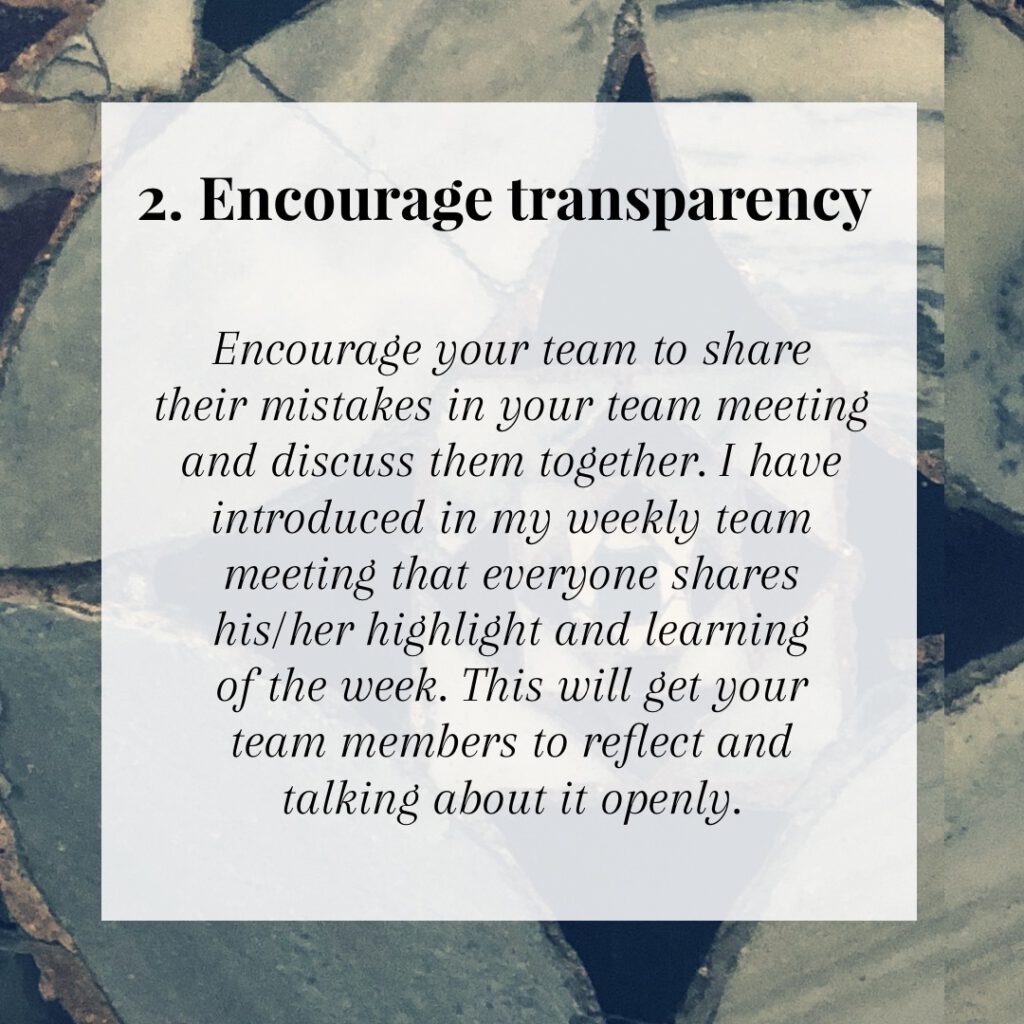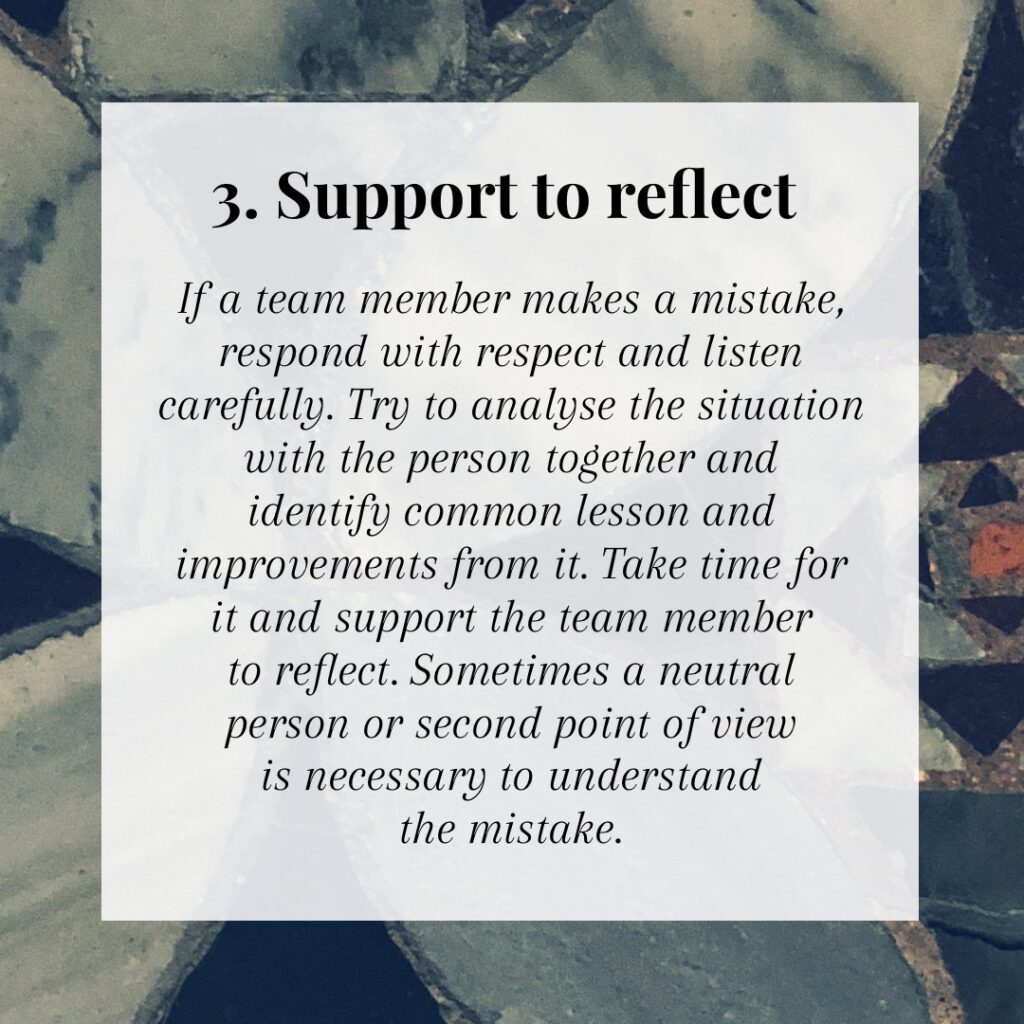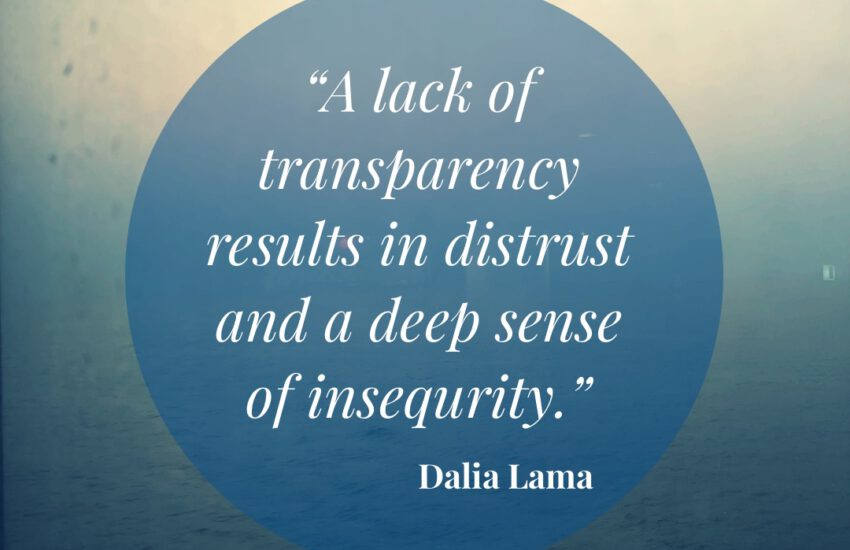The culture around handling mistakes
Somehow I was haunted by the idea that you have to be perfect as a lead and you have to maintain this idea so that the team respects you. Mistakes don’t happen to a lead. How else could I explain the behaviour of some of my predecessors, who never seemed to make mistakes or became loud or unpleasant if they were pointed out to the contrary? Today I know that is complete nonsense!
I decided not only to admit my mistakes, but to proactively tell my team about them. They should learn from my mistakes too! Not only from those of the past, but also from the ones I make now as a lead. The fact is everyone makes mistakes! By proactively sharing my experiences, I have managed to get my team members to share theirs as well and we learn from them together. People who are not afraid to make mistakes are also more courageous to make decisions and dare to do something. And isn’t that what our job is all about – encouraging our team to try new things? As I explain in the article „My principles and what leadership means to me“, I very often preach to my team to see mistakes as an opportunity to do something better or different next time. I try to replace the negativity of the word as an opportunity to improve.

Now the critics will say that it depends on the nature of the mistakes and that some mistakes can be fatal. That’s true – but the impact of the decisions made by my team members fortunately only affects the relationship with our clients/business partners or has an economic/financial impact. As one of my bosses always liked to say to me „we are not operating on an open heart, thankfully“. And of course I don’t want to minimise the impact – no one likes to be responsible for the company losing money – but it’s not quite as serious as when doctors make a mistake, for which they have my fullest respect.
Accepting and tolerating mistakes also does not mean making more mistakes or letting others make them, but reacting to them sensitively and respectfully. Analysing the situation and looking at where and how the mistake occurred and what we can learn from it. Was it due to a lack of information? Was there a source of error in the process? Was the error triggered by external interventions? How can we avoid repeating this mistake? The point is to teach the team not to be afraid to take responsibility for the mistake and to learn from it.
A friend of mine pointed out to me in a conversation that we learn from an early age in school to find mistakes made by others and above all not to make them ourselves. She told me an example of a teacher who wrote 10 equations on the board and made a mistake in one. The students immediately pointed it out to them and laughed at him. He then asked the children, „And what about the fact that out of 10 equations, 9 were correct?“ Answer: „Then you don’t get an A!“ I don’t want to debate school, education policy or perfectionism here, but the example made me think!
If we are honest with ourselves, we all know it. Being afraid of making mistakes causes stress and the fear of punishment or even shame. It can cause us to stop thinking clearly and go into flight or attack mode out of fear. An explanation why some managers, as described above, may have turned louder sometimes.
By talking about mistakes with our team members and actively admitting our own mistakes, we can reduce this fear and behaviour. But does this really work? Yes! I have been testing it for over two years. At the beginning, it was not easy for me to talk about this topic and to tell about my own mistakes and the lessons I learned from them. Now we talk about it regularly in the team and I also tell them when something has just happened. I have introduced that everyone has to tell about their highlights and learnings of the week at the end of our team meeting. In this way, I link making mistakes with learning something from them. In my company, an anonymous employee survey is conducted every quarter. Various questions are asked, including the question if they feel safe to make mistakes. I have had between 95-98% for 2 years now (the rest have said neutral).
My advice
- Be transparent with your team and tell them about your mistakes and what you have learned from them. You will be surprised how much more trust and respect they will have.
- Encourage your team to share their mistakes in your meetings and discuss them together. I have introduced in my weekly meetings with my team that everyone has to share their highlight and learning of the week at the end of the meeting. This will get your team members used to reflecting and talking about it openly. Allow enough time to have some discussion about it as well.
- If a team member makes a mistake, respond with respect and listen carefully. Try to analyse the situation with the team member and identify common lessons and improvements from it.





